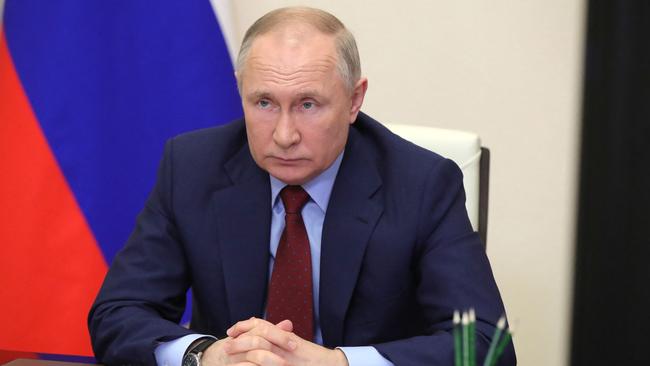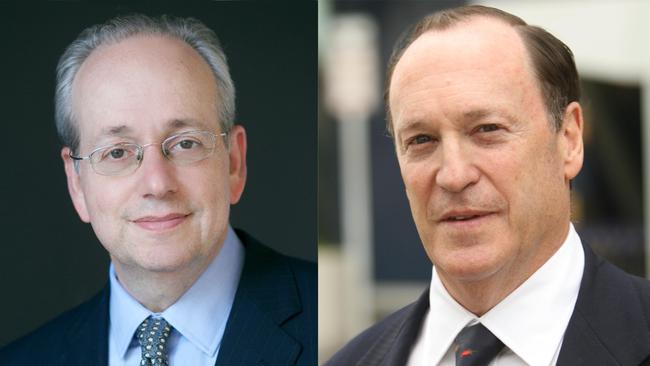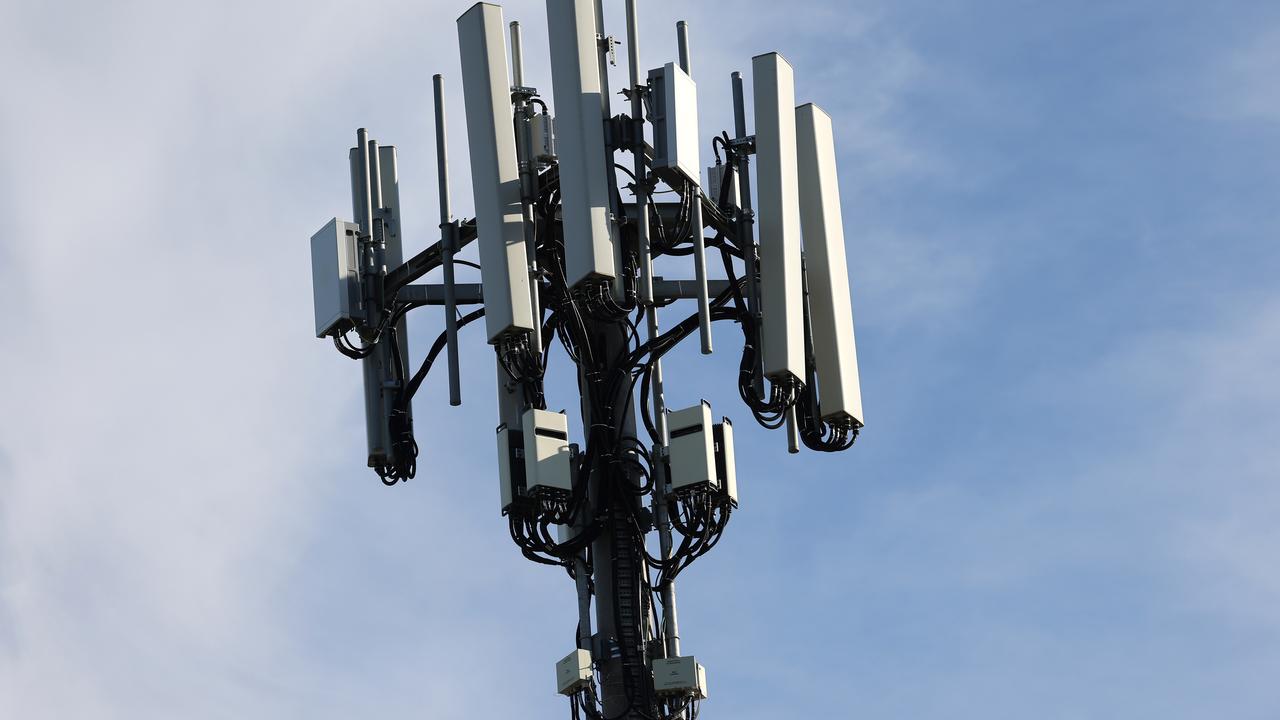Growing narrative on Russia TV: the West is tired of war in Ukraine
Online media misinformation monitoring service NewsGuard noted a growing narrative on Russian TV that the West had grown tired of the war in Ukraine.

Business
Don't miss out on the headlines from Business. Followed categories will be added to My News.
Russia is telling its citizens that US mothers can’t get baby food due to the country’s spending on the war in Ukraine.
Russia’s premium government TV station, Channel One, is also reporting that Germans were being asked to close the refrigerator door faster and dry clothes on a line, rather than in an electric dryer, due to energy shortages.
Misinformation media monitoring service NewsGuard said it had noted these stories as part of a growing narrative on Russian TV that the West had grown tired of the war in Ukraine and opinion was divided on sanctions due to energy and food shortages. NewsGuard said Channel One had reported that mothers in the US had experienced a shortage of baby food due to the high levels of spending by the US to thwart the “special operation” in Ukraine.
NewsGuard is a commercial organisation aimed at identifying online sources of misinformation and propaganda for its subscribers.
It focused on anti-vaxxer claims during the pandemic, and misinformation that led to the 2021 US Capitol insurrection.
For six weeks it recently monitored the daily broadcasts of Channel One to gain more insights into what the Russian public is being told about the war in Ukraine.

“Besides the usual bravado about the purported heroism of the Russian military and accusations of crimes committed by Ukrainian ‘neo-Nazis’, another theme has emerged: how much the West’s support for Ukraine is hurting its own citizens,” NewsGuard says.
NewsGuard said that in late April, Channel One reported that Germans were being told to close the refrigerator door faster and dry clothes on a line rather than in an electric dryer.
“This is not even the worst of it,” the channel said. “People are being asked to wash less often, and even better without soap and not fully.”
In another report, Channel one claimed: “In the new reality of American life, owning a car is a luxury,” and “you get the impression that America is now more concerned about a possible economic attack on Russia than the wellbeing of its own citizens”.
NewsGuard said the station also reported that “a catastrophic situation with baby food is unfolding” in the US where “billions in arms supplies are being sent to Ukraine” rather than on home necessities.
The Russian story featured a clip from US-based channel News Next on YouTube, where the host said US President Joe Biden had “sent billions of dollars of help to Ukraine but he’s not working to help the most precious commodity at home – our children.”

NewsGuard said Channel One also featured a US news clip critical of the US spending $US40bn on Ukraine, saying the spending was double what the country spent on border protection.
The reports come as some European countries express reservations about some sanctions, but equally there are bolder moves to hit Russia economically, such as the EU’s decision to block most Russian oil imports, with a proposed ban on gas on the agenda.
John Henningham, founder and director of Jschool, an Australian online journalism school, said Russian President Vladimir Putin was using the flow of information as a tool to thwart the sanctions against Russia.
“I’m certain he is, yes. He’s KGB, remember. They would use every trick in the book,” Professor Henningham said.
“I’m sure they’re spending billions just trying to mess with our minds. And to some extent they’ve succeeded.”
Prof Henningham said Russia was trying simultaneously to reassure its citizens while pushing a narrative designed to divide the West.
“The use of information and disinformation is very much part of this war and it’s concerning when some of this is leaching through to the West as well, and some people are beginning to doubt the point of supporting Ukraine and getting caught up with conspiracy theories,” he said.
Originally published as Growing narrative on Russia TV: the West is tired of war in Ukraine



